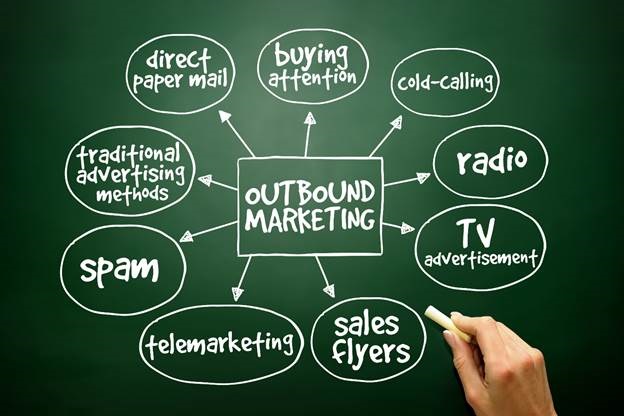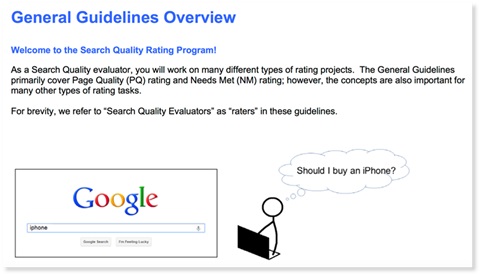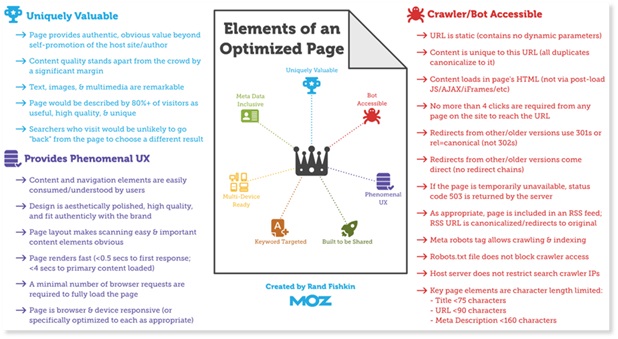
Google and the B2B Marketer – 8 Google Tips for the Scientific Marketing Manager
Since the launch of that plain white screen and search box in the late ‘90’s the marketing of B2B products changed forever.
The days of shouting at your customers with mail drops, cold calling and other interruption marketing techniques began an inevitable slide in relevance and effectiveness.

“Just Google It!”
That’s because, “You just Google it”, right?
It’s now well accepted, because Google told us, that 57% of the buying decision occurs before a potential buyer contacts you. So, you simply can’t ignore the big G and you can’t assume that what worked for you last week will work next week.
In reality you’ve two main options in terms of being found on your prospects desktop or mobile device when they conduct a search:
- Spend lots of dollars with Google buying your way to relevance and the top of the page, or,
- Produce content that your audience wants to consume, ensure it’s search engine friendly and distribute it effectively.
TIP 1: Don’t ignore Google Adwords for your key products and search terms.
OK admittedly there’s a third option, which is to combine 1 and 2;
TIP 2: Currently, the most effective digital business strategy is to combine Adwords with writing good quality copy that answers the questions your customers are asking.OK admittedly there’s a third option, which is to combine 1 and 2;
Adwords and Agencies
Should you just go to an Adwords Agency and get them to organise everything? You can, and we’ve seen many of our clients do that successfully, but:
TIP 3: Ensure any Adwords Agency you use adopts a balanced view.
What I mean by that is we’ve seen many examples where the overt pitch of the agency is to “help their clients”, but the hidden agenda is to control as much of the customer’s digital budget as possible.
As a big, and if I may be so bold, effective science marketing platform, we at AZoNetwork.com know our ideal customers and target industries inside out. Furthermore, there are times when we are 100% certain that we could really help the company which supplies (for instance) analytical equipment to industrial and academic buyers; only to be met with disdain by the Adwords agency wanting us to disappear faster than a rabbit down a hole – their mindset being that no matter how good and effective we may be, we take food off their table (yet they’re still happy to take a hit on your ROI?!).
Please bear in mind, that despite all the neat tools an Adwords Agency may show you to convince you that you cannot possibly have the level of sophistication to run an effective Adwords campaign – you probably can and you need them to keep an open mind on all digital marketing options. Here’s some useful Adwords resources;
10 Tips for Creating a Successful Google Adwords Campaign
Ultimate Guide to Google AdWords, 4th Edition
Equally, if you want someone else to carry the load for managing your Adwords, programme there are quality agencies out there, just be thorough in how you check them out.
Also, don’t forget that even if you devote the whole of this year’s coffee machine budget to an Adwords programe, you can’t ignore the content quality on your site pages, Adwords takes into account the quality score of your Ad and Landing Page. If people are clicking on your Ad but bouncing straight out from your low quality content via the back button, Google will increasingly “dislike” your ad and reduce its effectiveness.
Content is King and where it ranks is your Kingdom

You’ve heard enough by now about how important Content or Inbound Marketing is, but like many companies, you know that it ain’t easy generating the stuff and once your masterpiece has been produced it’s even more difficult to get it on that first page of Google.
So what’s really important for you to know?
TIP 4: A copy of Google’s search quality evaluation guidelines recently found its way on to the web: Search Quality Evaluator Guidelines

In simple terms, it provides some insight into how Google uses real live humans to evaluate how “appropriate” a site is in relation to the task the searcher is trying to accomplish and what’s the “quality” of the site.
It’s probably the best insight we ever get into the great mind of Google and its myriad algorithmic quality signals. But I warn you, it’s a fair old read, a skim through the headlines will give you a good feel for the type of issues Google considers important.
The Love and Hate in Search Engine Rankings
Like many website operators, we’ve spent many years initially loving, then hating the Google Algo, then loving it again. We’d work really hard on producing good quality content that ranked really well, only to find months later that we were being outranked by lower quality content (in our view). The typical cry around the office being, “how does that rubbish rank above us”? Actually, that’s not the typical cry, the real one had many more swear words in it.
What we had to learn and what is worth sharing, is that the Google Algo isn’t a finished product. It’s constantly evolving. Sure in the early days when Larry and Sergey the founders of Google got together, their “Backrub” product as it was initially known was pretty easy to understand, the more links a site had coming into it the better it was, right? Correct, but then, as Google grew in significance the “bad guys” realized they could make sites to link back to their site and artificially inflate their apparent quality.
Back in around 2007, I was in a three way meeting with a major multinational materials supplier and their Search Engine Optimization (SEO) Guru(?). Needless to say he didn’t like me as he could see I was starting to get my hands on some of that digital marketing budget. But Gollum (as he became known to us) wanted all of the precious budget and he really wanted to impress the client with his mysterious abilities.
The line that sticks in my mind was, “I’ve just left my son building over a thousand sites to help get these guys up the rankings. He should be finished by early afternoon”.
But hey, that was then, nearly 10 years in web years is almost a century ago in real life. Suffice to say, I didn’t agree with the approach as it smacked of a short term fix/fiddle and unlike in debates about cooking, I was proven to be right.
TIP 5: Quick wins with Google that are not based on quality or improving the experience of the reader very rarely last.
You don’t have to be Einstein to appreciate that with thousands of data scientists and a mountain of money at their disposal, Google soon figures out any form of spammy tactic and sets about killing off the efforts of the bad guys wherever they find them.
Thankfully, although they are continuous rolling algo updates literally on a weekly basis, Google in 2015, has arrived at the point where the dreaded dramatic disappearances very rarely occur if your primary focus is on unique quality content.
The Google Zoo – beware the cuddly animals
You may have heard of Panda’s, Penguins, Pigeons and Hummingbirds as some of the Google algo updates are known. There’s a great summary of what these are and when they occurred on the Moz.com site https://moz.com/google-algorithm-change
The ultimate aim of all these various algo constructions and tweaks is really simple, my 3 takeaway bullet points being;
- To improve the experience of the individual searching the web and to provide the highest quality and relevant content.
- To “understand” the context of the search query i.e. are you looking for a local result or is it a more general question?
- To stop the bad guys winning.
As I indicated above, we’ve always had an approach which centered on high quality, free to access, science, technology and medical content, but on occasions, inadvertently, we’ve fallen foul of the Google Quality Guidelines.
Thankfully, with over ten years in business and over 5 million monthly unique visitors we’re reasonably happy we get it right more than we get it wrong. So, what are our current thoughts?
TIP 6: Be aware of the Google algorithm but don’t let it worry you, just focus on doing the right things.
As a B2B marketer, there are Google Algo changes that matter more to you than others and they fall into two main enclosures, the Pandas and the Penguins.
Panda
Google Panda focuses on quality content. When it was released it had in its sights (paws?) what were known as “Content Farms”. Low quality sites aggregating duplicated, scraped and generally “thin” content.
So for B2B marketers, the key issue is to focus on good quality unique content.
Occasionally, The Panda causes a problem when we work with clients as we have to be firm in pointing out that although it’s easy and quick to use content they’ve already had published elsewhere, that could rouse the Panda and before you know it we’ll both be on the wrong end of a bamboo shoot in the eye.
TIP 7: Don’t be tempted to cut and paste or re-post duplicate content without thinking about how the Panda algo will view your actions.
For a good summary check out Matt Cutts, Google’s lead on all things SEO http://searchenginewatch.com/sew/news/2295269/matt-cutts-talks-google-panda-basics-make-sure-youve-got-quality-content#
Penguin
The key targets of the Penguin update were sites that were indulging in dodgy tactics by buying incoming links or setting up artificial link farms. In reality, this is an easy one to avoid, you know if you’ve been involved in these types of activities or not, and if you have, stop!
The Technical Aspects of your Pages
Time to bring in your webmaster and put your thinking cap on when it comes to honing that well-optimized piece of quality unique content.
Now, I’ve somewhat skimped over the technical aspects of your pages by using the catch all phrase, ensure they are “well optimized”.
The graphic below provided by Rand Fishkin is a useful guide to what “well-optimized” means in real terms.

Read the full article here.
TIP 8: There’s around 20 key issues relating to the design of your website that leads to what can be called a well optimized site. Make sure your webmaster is across all these issues.
Finally, I mentioned indifference in the title to this article. It really is the state of enlightenment and good karma in relation to B2B Marketing and Google. If you’re avoiding the short cuts, producing great content and distributing it via legitimate quality routes, you have very little to worry about and you can be largely indifferent to Google Algo changes.
How can we help?
If you’d like us to take a look at your existing site and assuming it’s relevant to our AZoNetwork.com activities we can provide you with a free assessment and advise you on how to produce and distribute high quality content more effectively.